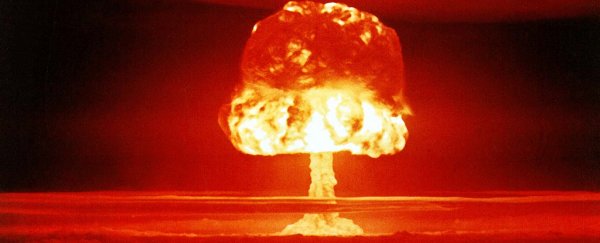The Anthropocene is an unofficial label for the dawn of a new human epoch. While the idea remains contentious among scientists, colloquially, it refers to a block of time in which our species has permanently altered Earth's geology.
Today, we are currently living in the Holocene epoch, which has persisted since the last Ice Age. Yet in the face of a modern climate crisis, a mass extinction and widespread pollution, some geologists think we have entered a whole new time, and it deserves a whole new name.
The idea has been popular since the turn of the century, when atmospheric chemist and Nobel laureate Paul Crutzen argued there was overwhelming evidence that humans had altered our planet's atmosphere, geology, hydrology, biosphere and other systems to such a profound degree that it constituted a new epoch.
Still, there are those who disagree. Defining a new period like this requires a clear signal that takes place globally and is embedded in the future geologic record. And some think that while our environmental impacts are clear, we are still lacking such distinct boundaries.
Have we entered a new epoch?
Over the years, the Anthropocene has only grown in popularity as a term, and several factors have been used to measure it with varying degrees of success. The hardest part is figuring out when it actually started.
In 2016, an official expert group of geologists recommended starting the new epoch in the 1950s, when the industrial revolution took hold, nuclear bomb tests began, plastic pollution started to run amok, and soot, concrete, and even chicken bones solidified their presence in our lives.
But critics of the proposal argue the impact of human activity – while significant on a human scale – might not be significant enough in the context of deep time. They also contest the challenge of picking a clear 'Global Boundary Stratotype Section and Point', or 'golden spike'; a physical difference in the geological record that serves as an objective standard of time.
Without much consensus, it's hoped that by 2021, the body responsible for defining Earth's geological history – the International Commission on Stratigraphy – will see a proposal currently being put together on the Anthropocene epoch. It's up to them whether they accept it or not.
All topic-based articles are determined by fact checkers to be correct and relevant at the time of publishing. Text and images may be altered, removed, or added to as an editorial decision to keep information current.
